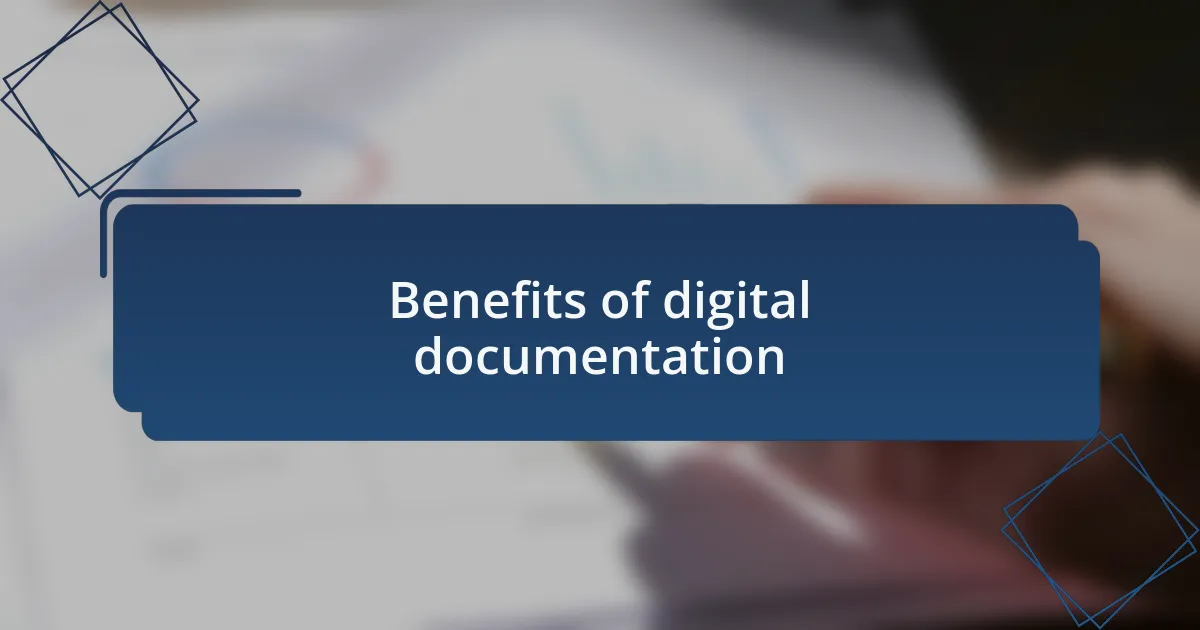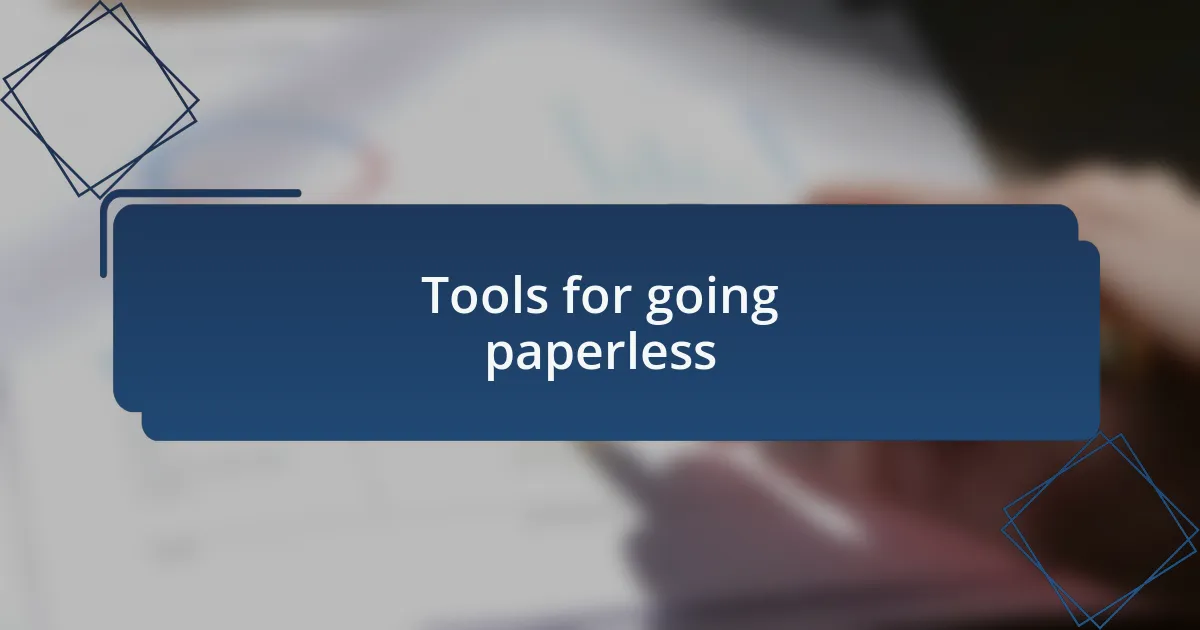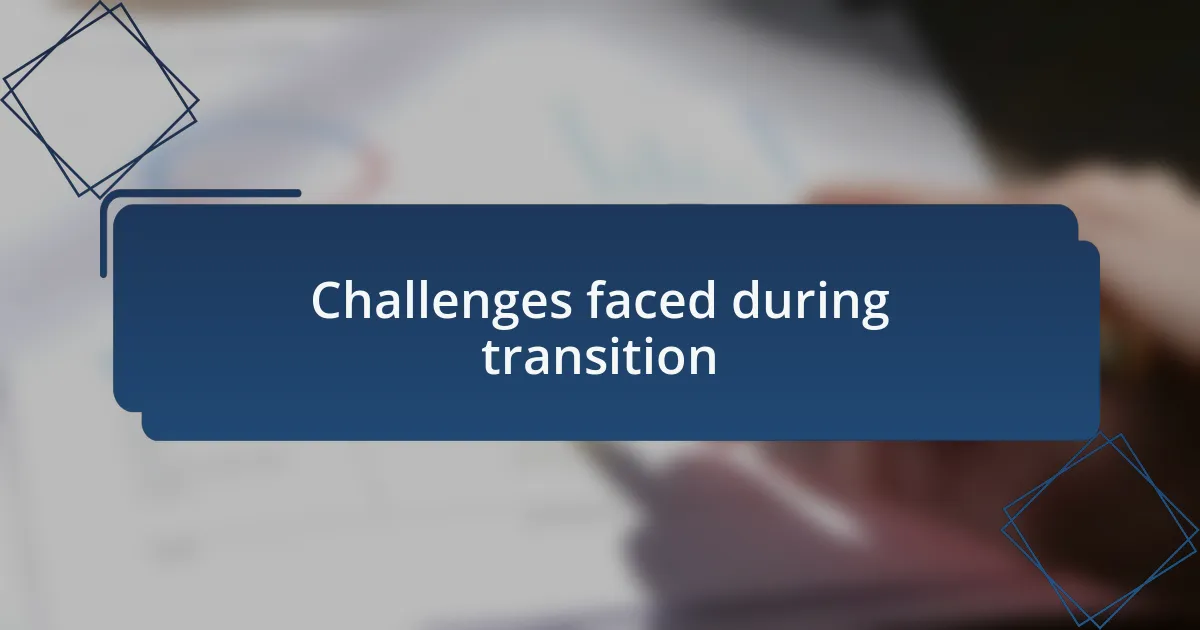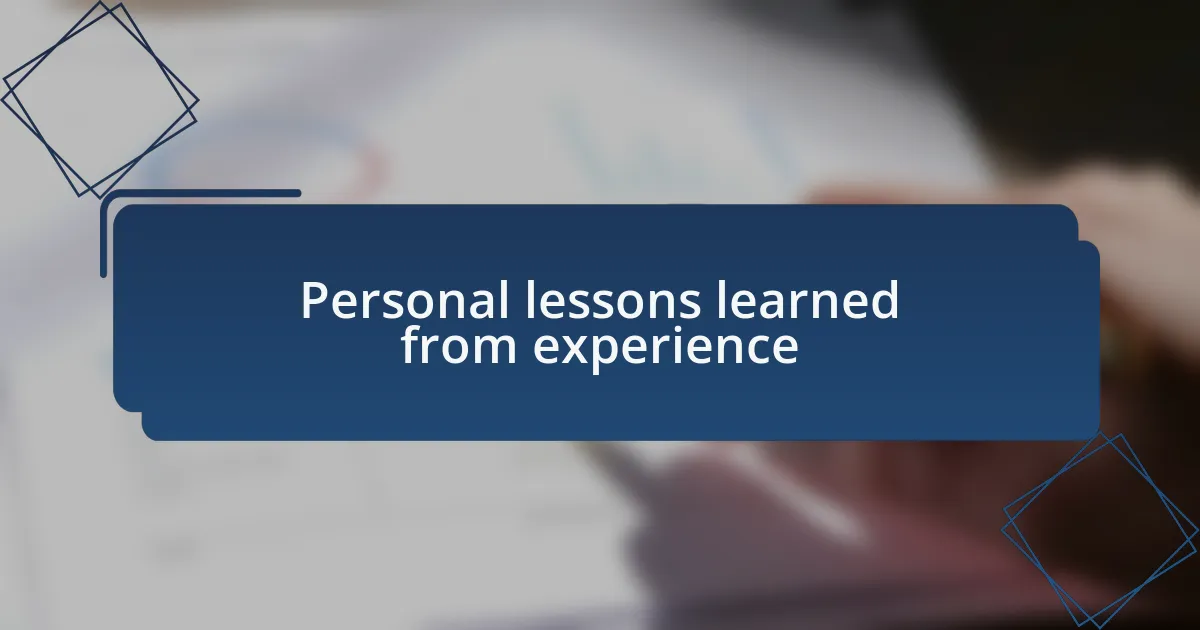Key takeaways:
- Eco-friendly finance includes sustainable investing, green banking, and digital practices that benefit both personal finances and the environment.
- Transitioning to a paperless system simplifies financial management, reduces waste, and contributes to long-term savings.
- Digital documentation enhances organization and security while lessening environmental impact, offering a streamlined approach to financial practices.
- Challenges during the transition include adapting to new technology, skepticism from family and friends, and the need for effective organization of digital files.

Understanding eco-friendly finance
Eco-friendly finance revolves around making financial decisions that benefit both our wallets and the planet. When I switched to a paperless system, I felt a sense of liberation, knowing that every click of my mouse was a step toward reducing my carbon footprint. Isn’t it satisfying to consider how small changes in our financial practices can contribute to a healthier environment?
Understanding eco-friendly finance goes beyond just going paperless; it encompasses sustainable investing, green banking, and supporting businesses that prioritize the environment. I remember the first time I invested in a green bond. It felt empowering to know that my money was supporting renewable energy projects. That experience taught me that personal finance doesn’t have to be at odds with environmental responsibility. Why shouldn’t we support initiatives that align with our values?
Moreover, many people don’t realize that eco-friendly finance can lead to long-term savings as well. I’ve noticed that by embracing digital statements and minimizing physical transactions, I’m not only cutting down on paper waste but also saving on postage and material costs. Could shifting to eco-conscious choices in finance actually boost your savings while helping the environment? I believe it can, and my journey has shown me that eco-friendly finance is both a practical and ethical choice.

Importance of going paperless
Going paperless is paramount in our journey toward sustainable living. I vividly recall the moment I sorted through decades of old bank statements, realizing just how much space they occupied—both physically and mentally. Transitioning to a paperless system was like hitting a reset button; it not only decluttered my home but also decluttered my mind. Have you ever experienced that relief that comes from simplifying your surroundings?
Reducing paper consumption is critical in combating deforestation and lowering greenhouse gas emissions. I felt a deep connection to the cause when I learned that every ton of recycled paper can save 17 trees. That insight inspired me to embrace digital alternatives wholeheartedly. Less paper means fewer trees sacrificed for our convenience—don’t you think we owe it to the planet to make that choice?
Moreover, the environmental impact is just the tip of the iceberg. Adopting paperless practices has streamlined my financial management significantly. In an age of technology, I can access my financial information anytime, anywhere, without sifting through piles of paperwork. Isn’t it a relief to have everything at your fingertips? I can’t emphasize enough how important it is for us to leverage technology not only for convenience but also for eco-consciousness.

Benefits of digital documentation
Digital documentation offers remarkable benefits, especially in terms of organization. I remember the days of frantically searching for a misplaced receipt or important document, a source of endless frustration. Now, with everything stored securely online, I can locate what I need almost instantly. Isn’t it incredible how much time we can save by reducing clutter?
There’s also the appeal of enhanced security. In my experience, physical documents are vulnerable to damage or loss, whether from fire or simply misplacement. Transitioning to digital files means I can back up my important documents and protect them from such risks. Have you ever lost an important paper? The panic is real, but having digital backups offers a sense of security I truly appreciate.
Finally, the sustainability aspect cannot be overlooked. I felt a genuine sense of accomplishment when I realized I was contributing to less waste by going digital. It’s empowering to know that each time I choose to scan rather than print, I’m making a small but significant difference. How liberating is it to make choices that benefit both my life and the planet?

Tools for going paperless
Digital tools have truly transformed my paperless journey. One of my favorites is the scanning app on my phone. I can snap a quick picture of any document, and within seconds, it’s stored in the cloud. It’s astonishing how freeing it feels to have receipts and contracts condensed to digital files rather than overflowing my desk. Have you tried this convenience?
Then there’s my reliance on note-taking apps. They not only let me jot down ideas but also help me categorize and search through notes effortlessly. I remember attending a workshop where I filled multiple pages with ideas. Instead of lugging those papers home, I was able to type everything on my tablet, which I later organized into folders. This streamlined approach is a game-changer for keeping my thoughts organized and accessible.
Moreover, I can’t stress enough the role of digital finance tools in my life. Using budgeting apps allows me to monitor my expenses without managing countless paper statements. It’s both practical and satisfying to see my financial health tracked in real time, avoiding the hassle of sifting through piles of paperwork. It’s amazing how technology can simplify even the most overwhelming tasks, don’t you think?

Challenges faced during transition
Switching to a paperless lifestyle introduced unexpected hurdles. One of my biggest challenges was the initial learning curve associated with new technology. I remember feeling overwhelmed when I first attempted to digitize my old files. It took patience and practice to confidently navigate unfamiliar apps, which can be quite frustrating. Have you ever felt lost when trying to adapt to new tools?
There were moments when I missed the tangible comfort of holding a physical document. I still recall the anxiety I faced during tax season when I couldn’t find a digital file amid the chaos of my cloud storage. It led me to rethink my organization methods. Learning how to tag and categorize everything effectively felt like learning a new language. Isn’t it interesting how something so simple can create such a sense of disarray?
Another significant challenge was overcoming the skepticism of friends and family. As I embraced the paperless movement, some loved ones questioned the reliability of digital records. I often found myself defending my choices over family dinners. This made me realize that transitioning is not just a personal journey but one that involves conversations with those around us. How do you handle skepticism when you’re excited about change?

Personal lessons learned from experience
Embracing a paperless lifestyle taught me the importance of organization in a new way. I vividly remember one late night spent searching for a crucial document in my cloud storage. It felt like hunting for a needle in a haystack. That experience prompted me to create a meticulous folder structure, something I never prioritized before. Have you ever felt the relief that comes from a well-organized digital space?
Another lesson I learned was to trust technology but also to maintain a backup habit. During a technical glitch when my app crashed unexpectedly, I nearly panicked, fearing I’d lost essential files. That moment led me to implement a routine where I save copies across multiple platforms. It was a stark reminder that while technology can be reliable, having a safety net is essential. How often do we think about the unexpected twists technology can throw our way?
One realization that struck me was how the paperless transition impacted my mindset about consumption. I began to view every new digital tool not just as a convenience but as a choice to reduce my environmental footprint. I recall the conversations I had with myself while decluttering my digital space; each deleted file felt like a small victory. Have you experienced the empowerment that comes from making intentional choices for the planet?